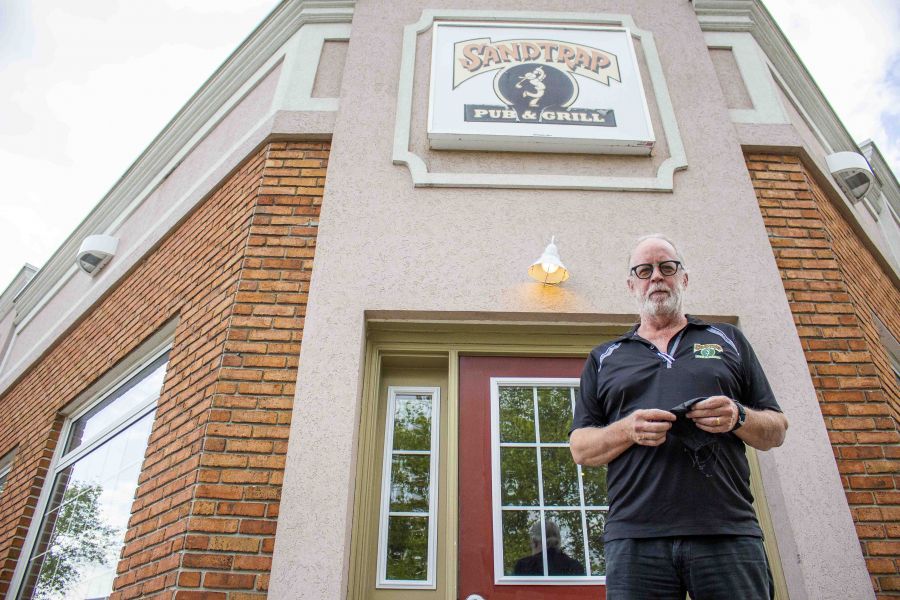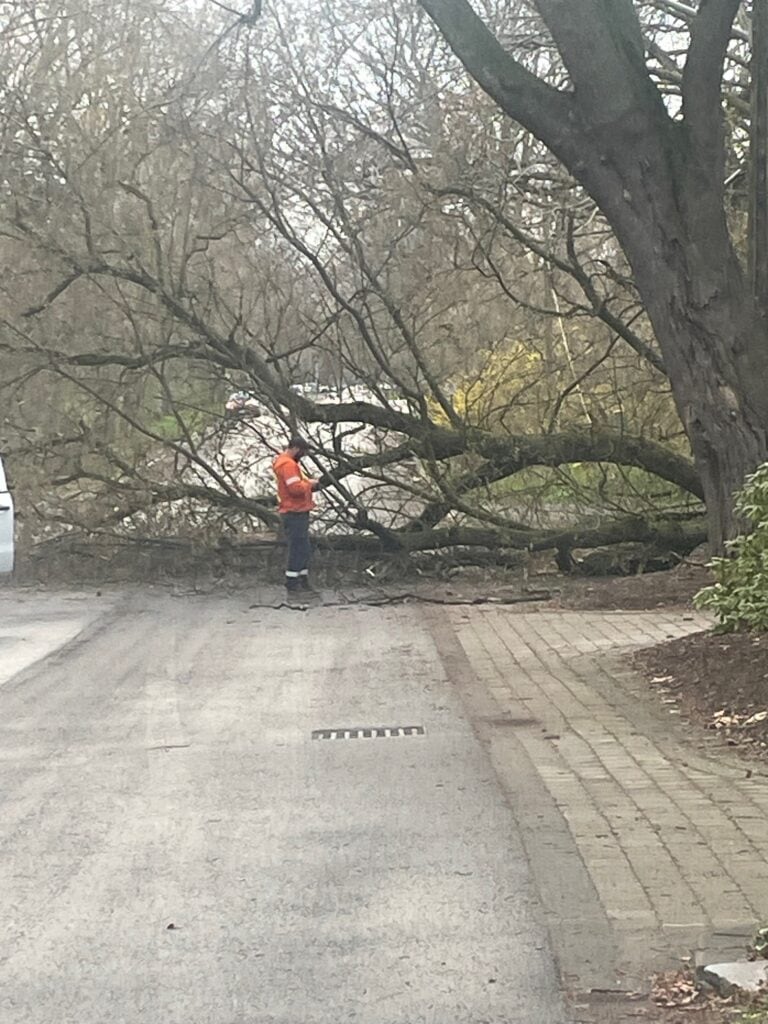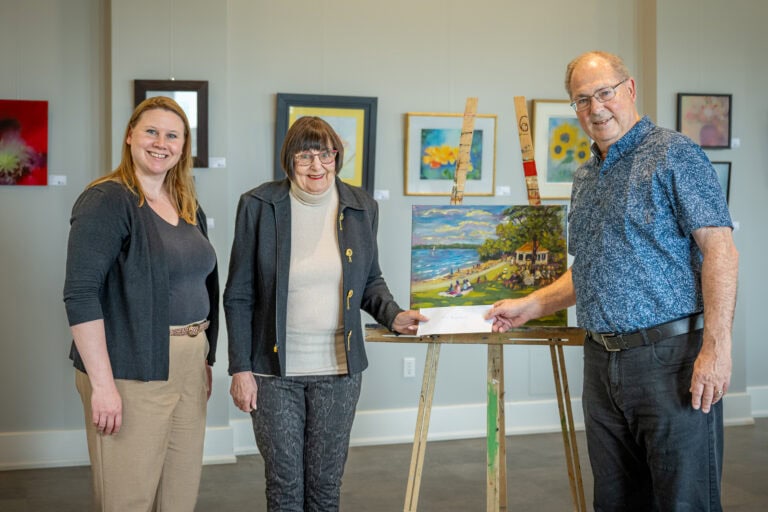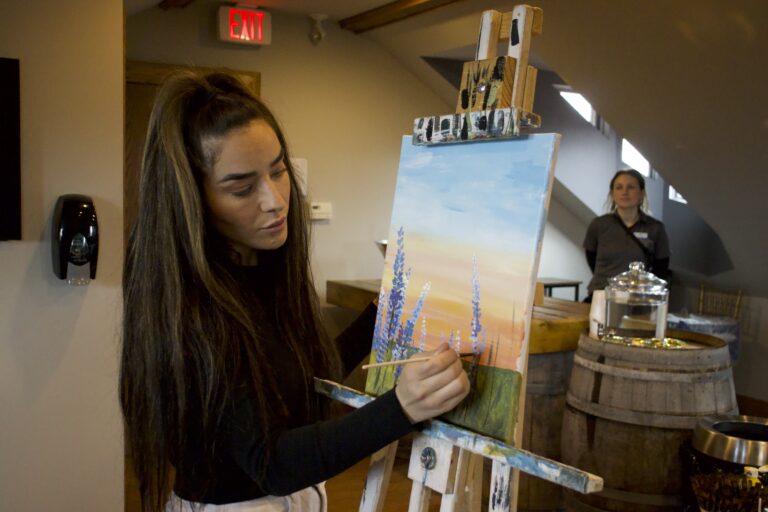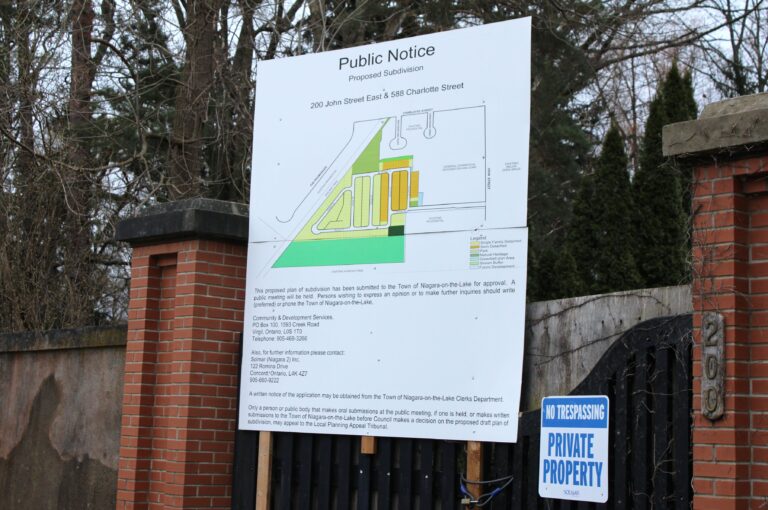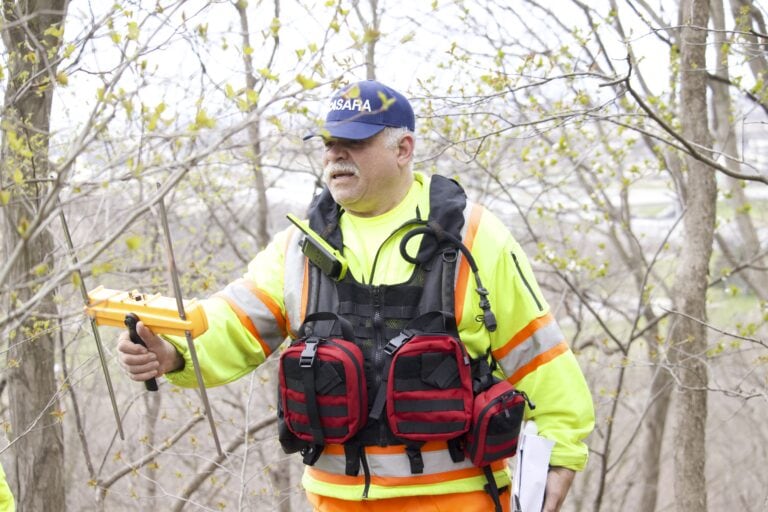With proof of vaccine requirements rolled out across the province, there has been some confusion among restaurant employees on just how to enforce the order – and how to determine which vaccine receipts are acceptable.
Glenn Muir, a bartender and manager at the Sandtrap Pub and Grill, was trying to do his best by enforcing the mandate as he understood it when an American customer came in for dinner.
The American, Wade Davis, who lives in Niagara-on-the-Lake, had been vaccinated in the United States with the single-dose Johnson & Johnson vaccine. However, provinicial guidances for restaurants say a person must have two valid doses of vaccine to be allowed inside to dine.
While further into the guidelines the province does clarify in a footnote that restaurants are supposed to accept Johnson & Johnson vaccine receipts as valid, for Muir, who doesn't get paid to enforce government policies, it's something that simply got overlooked.
“A gentleman came into the restaurant and the waitress went over to him to do the vaccine passport and ID check. He had a single shot, J&J, from the States. She came to me and said, 'I don't know what to do.' “
Muir spoke to Davis and informed him that, based on the Ontario directive, customers had to have two shots.
The situation escalated, with Davis ending up leaving.
“He called me a f—– sheep and stormed out the door,” Muir said.
Later, Davis got in touch with Muir through his wife's Facebook account and shared messages he received from Lord Mayor Betty Disero and Niagara's chief medical officer, Dr. Mustafa Hirji, which confirmed that Johnson & Johnson should be accepted.
“Businesses should be accepting one dose of the J&J/Janssen vaccine. Unfortunately, businesses are still learning the new certification rules and there was an error made to this gentleman here,” Hirji wrote in response to Davis and Disero.
Hirji pointed to the province's guidance for businesses, where on page 8 in a footnote it outlines that one dose of Johnson & Johnson qualifies a person as fully vaccinated.
But Muir takes issue with that, asking how in reality employees are supposed to be familiar with every bit of the regulation — especially an obscure footnote buried on page 8.
“Hirji said I should have known and I did the gentlemen a disservice, which I don't see how I did when he hasn't really explained to us what we need to do.”
Reached by The Lake Report, Davis, a retired dentist, was apologetic for his reaction. However, he said it was frustrating and was the first time he'd had any issues.
“I've been going there every week since I moved to Canada four-plus years ago, as I live only 600 metres away in Chautauqua. Until this episode, I had not had a problem going to any restaurant,” Davis said.
“I knew what they did was wrong, and me being an American did cross my mind. I tried to explain why they were wrong, but there was no one in charge except the bartender. He kept saying over and over that no matter what he thought, he couldn't allow me in or it would cost him $1,000.”
“I thought the whole thing was bizarre. I lost my cool, I'm afraid, and called him a sheep. I then left, wondering what had just happened. It's not like me to blow up like that. If I see the bartender again, I will apologize profusely for my reaction.”
Davis's email from Hirji clarified the situation and Davis said he was told to bring the regulations and the email with him in the future in case other restaurants run into the same confusion.
That confusion, Muir said, is partly the result of a lack of firm guidance from public health departments. He added Niagara Region public health has also not provided firm guidance as far as he's aware on how to enforce the vaccination requirements.
Added to his daily work obligations, it's become a confusing mess. Not only are there Ontario receipts and guidelines, he's also dealing with American receipts, European receipts, receipts from different provinces, and various levels of government.
“There's three different levels of government that I'm trying to deal with here and actually I'm trying to do more than that, because I had a handwritten B.C. one yesterday, handwritten by his doctor,” Muir said.
“I have American passports, a gentleman from France yesterday. How am I supposed to differentiate between these and what's real and what's fake?”
Muir said he's heard reports that even border agents don't know how to properly tell real receipts from fake ones.
“So, it's come down to they've put it on the hospitality industry people,” Muir said, adding it's not that they can't handle it, but when there's a risk of a large fine to his employers, he's going to be strict to ensure that doesn't happen.
He said the situation could have been rolled out a lot better.
“They're just not giving us the proper guidelines and they seem to be passing the buck. And the buck seems to land on the industry. It has been this way since the start of COVID,” Muir said. “It becomes tiring to say the least.”
He said there should have been a national mandate with a secure card or QR code given to all Canadians, “so that it's standardized across the board — not Ontario, Alberta, Quebec.”
“Quebec's rules are very different than ours. And so what do I accept from them? It starts to drive you crazy after a while,” he said.
“Our jobs have become more and more loaded up with work just because of that. I mean at 11 o'clock at night I have no waitresses there and I have to check every single person that comes in the door.”
During a busy night, servers and managers can't be expected to drop everything and read regulations, he said. Because of that, it's sort of like picking poison berries — if a server or manager is uncertain whether it's safe, it's easier to just say no.
Muir said it's not just a hassle for him, but all service industry workers. And it isn't realistic, especially during down times, for restaurants to hire someone to check the door.
“I'm just glad it was me and not somebody else because I've got thicker skin than most people,” he said.
Muir said it could be solved if all levels of government could get together and make a unified set of rules to stop the confusion and potential for fake receipts.
Or, he said, everyone could just get the vaccine. “But that's not going to happen.”
“There's got to be a way” to have a simple system so servers can simply scan a QR code at the door.
“But that costs money and Douggie Ford doesn't want to spend any money,” he said.
“I understand the severity of the disease. But what I don't understand is why they couldn't have come up with a better way of doing things, so that the onus is not on somebody who's making $12.25 an hour.”
Muir said he's happy his employers have his back.
“I got theirs, they got mine. They take care of me. And I know there's a lot of places out there that don't, so I'm (grateful).”
In general, checking for vaccine receipts hasn't caused many problems, he said.
“It just slows everything down, slows the entire industry down, because you can't get them in fast enough and seated, and now you got 10 people at the door that you've got to check. Well, there's nine of them waiting while you're checking the 10th one,” he said.
“You can only go as fast as the slowest part of your machinery. And that's a choke point and slows the whole machine down.”



